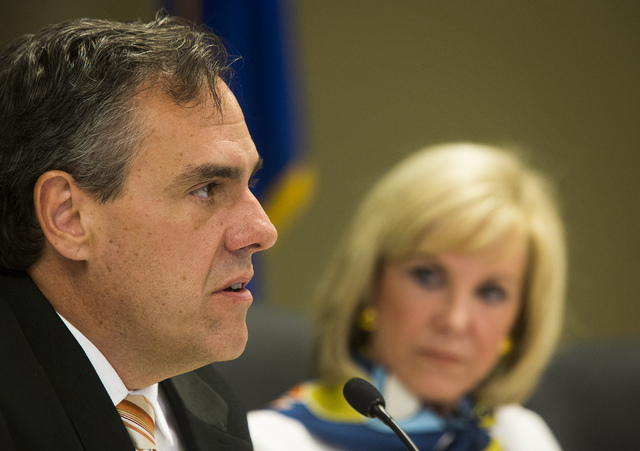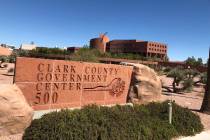Security of student information questioned under new Nevada data system

Every single child in Nevada public schools will soon be assigned an identification number and tracked in detail from preschool through high school to college under the combined efforts of a trio of state departments creating a super-data system.
The system will be completed by July 2015 and will track individual test scores and personal information including birth date, ethnicity, whether a student lives in poverty, speaks English as a second language or is classified as special education. It’s called the Statewide Longitudinal Data System — SLDS for short — and it has more than parents concerned.
State lawmakers and Nevada’s head school official expressed concern Tuesday over the security of the information and whether test vendors will share it with the U.S. Department of Education and other parties.
“Privacy. Where does the information come from and where does it go?” asked Nevada Superintendent of Public Schools Dale Erquiaga in testimony Tuesday to the Legislative Committee on Education. “That’s a concern we all have to be aware of.”
The issue is the “chain of custody” of the information, or who sees the data once it’s beyond the state’s hands, said Erquiaga, whose Nevada Department of Education has partnered with the Nevada System of Higher Education and Nevada Department of Employment, Training and Rehabilitation to combine data systems and create the system.
Erquiaga has directed staff to review Nevada’s proposed contracts with vendors for state-required online testing to see how much individual student information would be passed on to the testing companies, and whether they plan on sharing it with other companies or public entities.
“We have to review these agreements,” he said.
Nevada lawmakers and education officials aren’t alone in the concern. Nevada, and 32 other states also creating similar tracking systems and using the same testing companies, pressed U.S. Secretary of Education Arne Duncan in a Jan. 23 letter to confirm that their participation in the online tests doesn’t mean test vendors will share detailed student information with anyone, specifically the U.S. Department of Education or any federal agency.
In the past, states have only shared school-level data with the federal government and nothing that identifies individual students. But that was before officials in various states signed into the Smarter Balanced Assessment Consortium and Partnership for Assessment of Readiness for College and Careers, which they now fear may have inadvertently given the federal government an online door to obtain student data.
The states emphasized to Duncan that the federal government is “prohibited from establishing a student-level database that would contain assessment data for every student.”
Duncan hasn’t replied, according to Nevada Department of Education spokeswoman Judy Osgood.
However, the federal Department of Education released new guidance during the legislative committee’s Tuesday meeting telling school officials how to protect student privacy.
The guidance said the Family Educational Rights and Privacy Act, referred to as FERPA, sometimes applies and is meant to protect personally identifiable student information from being disclosed.
“FERPA is just a foundation,” said Paige Kowalski, director of state policy and advocacy for the Data Quality Campaign, which promotes the use of student data to improve achievement. “There’s plenty of room for a state to build on top of that.”
State lawmakers are already trying to put more protections on student data than provided under FERPA, something evident in the 41 bills proposed by lawmakers across 21 states since January, Kowalski said. That doesn’t include Nevada yet because there’s no legislative session this year.
The review of vendor contracts will be concluded by the end of March, and the Nevada Board of Education will vote on whether to award the contracts in May.
“I think there might be too much information being tracked,” said state Sen. Scott Hammond, R-Las Vegas, concerned with keeping student information in Nevada school officials’ hands for the intended purpose of seeing if schools are doing their job of educating students.
“I don’t think there’s anyone in this room against getting data. The question is who’s getting the data, where’s it going off to? That is paramount.”
Contact reporter Trevon Milliard at tmilliard@reviewjournal.com or 702-383-0279.


















